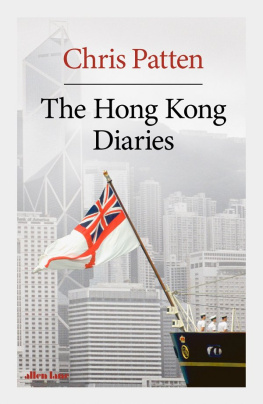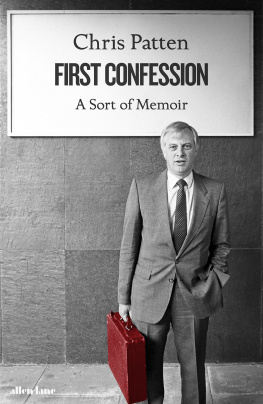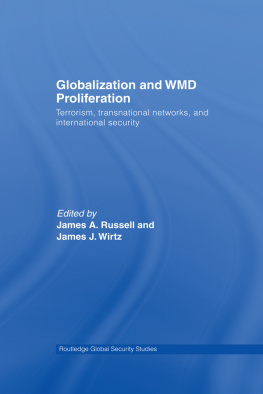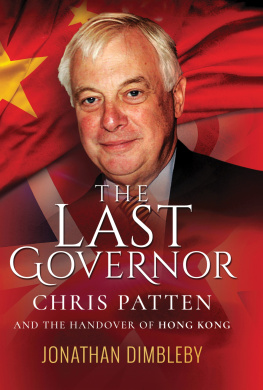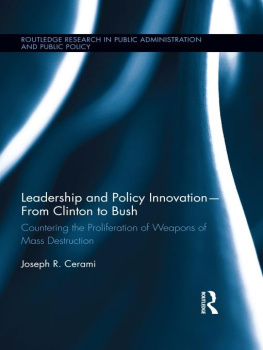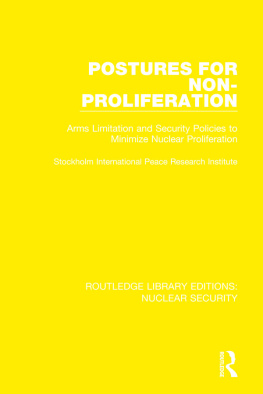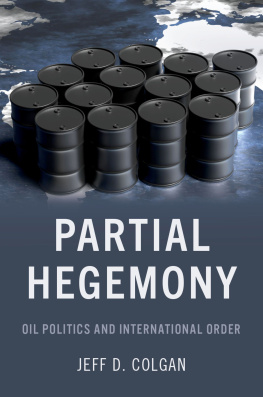CHRIS PATTEN
What Next?
Surviving the Twenty-first Century
ALLEN LANE
an imprint of
PENGUIN BOOKS
ALLEN LANE
Published by the Penguin Group
Penguin Books Ltd, 80 Strand, London WC2R 0RL , England
Penguin Group (USA) Inc., 375 Hudson Street, New York, New York 10014, USA
Penguin Group (Canada), 90 Eglinton Avenue East, Suite 700, Toronto, Ontario, Canada M4P 2Y3
(a division of Pearson Penguin Canada Inc.)
Penguin Ireland, 25 St Stephens Green, Dublin 2, Ireland
(a division of Penguin Books Ltd)
Penguin Group (Australia), 250 Camberwell Road, Camberwell, Victoria 3124, Australia
(a division of Pearson Australia Group Pty Ltd)
Penguin Books India Pvt Ltd, 11 Community Centre, Panchsheel Park, New Delhi 110017, India
Penguin Group (NZ), 67 Apollo Drive, Rosedale, North Shore 0632, New Zealand
(a division of Pearson New Zealand Ltd)
Penguin Books (South Africa) (Pty) Ltd, 24 Sturdee Avenue, Rosebank, Johannesburg 2196, South Africa
Penguin Books Ltd, Registered Offices: 80 Strand, London WC2R 0RL , England
www.penguin.com
First published 2008
1
Copyright Chris Patten, 2008
The moral right of the author has been asserted
All rights reserved
Without limiting the rights under copyright
reserved above, no part of this publication may be
reproduced, stored in or introduced into a retrieval system,
or transmitted, in any form or by any means (electronic, mechanical,
photocopying, recording or otherwise) without the prior
written permission of both the copyright owner and
the above publisher of this book
978-0-14-190566-2
This book is written above all for Isabella, Elodie, Willow,
Max and Samuel: this is their century.
Contents
List of Illustrations
Photographic acknowledgements are given in parentheses.
14 A rally of the Michigan militia, 1997 (Jim West/The Image Works/TopFoto)
Acknowledgements
My gratitude for help in writing this book runs wide and deep.
As ever, my thanks go first to my editor and friend Stuart Proffitt, who is diligent, learned and the most creative critic. He constantly prods me into trying harder without ever destroying my morale. This book would not have been written without him. My agent, Michael Sissons, brought his legendary wisdom to my support at every difficult turn in the road.
When I began research for the book, I needed help to assemble the raw material in order to educate myself about several subjects on which initially I knew too little. I had the assistance of two doctoral students at Oxford University, Taiye Tuakli-Wosomu and Richard Pan. Their help was invaluable.
As I started writing, my dependency level rose steeply. Two other postgraduates at Oxford, again recommended like the original two by Professor Sir Adam Roberts, came to the rescue. They provided overviews of complex issues, commented wisely on my draft and answered my questions with speed and accuracy. I cannot thank Emily Paddon and Andrew Baker enough. They are very clever, smart and sensible beyond their years, and exceptionally nice and decent people. They will have distinguished academic or public-service careers themselves. If you were ever to feel depressed about either the academic world or the future of free societies you would only need to meet either Emily or Andrew to cheer yourself up.
Several people have read and commented on parts of the draft, including Professor Roberts, for whose wise advice I am particularly grateful. I would also like to thank Anthony Cary and Edward Llewellyn. Professor Paul Younger of Newcastle University gave me excellent advice on the chapter on water and Professor Angela McLean of Oxford University told me what I should read about epidemic disease.
My favourite bookshop, alongside the Elliott Bay in Seattle, is in our London neighbourhood. The Barnes Bookshop, easier to get to than the one in Seattle, is the best possible example of the case for small bookstores. It is run by people who both love books Isla Dawes and Mark Brighton and have been hugely helpful in tracking down very quickly what I need and want to read. Their shop is one of my principal indulgences.
I write the first drafts of books by hand, which creates huge problems of translation for those who type the manuscript. Most of the work was done by my friend Jane Sigaloff in between writing her own witty novels. She was a friendly adviser and critic as well as an extraordinarily accurate interpreter of my tiny script. My youngest daughter Alice also typed parts of the book and my wife Lavender volunteered her services whenever we were under pressure. My eldest daughter Kate did the research for the chapter on drugs. My middle daughter Laura would have helped too had she not been looking after Elodie and having Willow.
So this volume has really been a family and friends business, but full responsibility for all its failings must be taken by the capo di capi himself. Any plaudits should be widely shared.
The book is dedicated to my grandchildren, which is as good in a way as dedicating it to their loving and much-loved grandmother. Lavender has once again had to cope with a writing husband whose papers are scattered across desks, dining and kitchen tables and most available flat surfaces throughout the house, who loses the only one he needs with regularity and who is not much of a companion when in full flow. She deserves a medal, but all that I am now going to give her back is me.
I have understood that the world is a vast emptiness built upon emptiness. And so they call me the master of wisdom. Alas! Does anyone know what wisdom is?
Song of the Owl from The Thousand and One Nights
While all other sciences have advanced, that of government is at a standstill little better understood, little better practised now than three or four thousand years ago.
John Adams, 1813
1
Funny Old World
All the people like us are We,
And every one else is They.
Rudyard Kipling,
We and They, 1926
Governments can do so little and prevent so little nowadays. Power has passed from the hands of statesmen, but I should be very much puzzled to say into whose hands it has passed. It is all pure drifting.
Lord Salisbury, 1895
My policy is to be able to buy a ticket at Victoria Station and go anywhere I damn well please. Ernest Bevin, 1951
As Margaret Thatcher famously observed at her last cabinet meeting, Its a funny old world. She might have added that it seems to get funnier by the year, to be sliding out of order. Gone are the day before yesterdays certainties, when the mutual assurance of destruction yoked together in a brittle truce what we called the Free World and its communist adversary. Gone too, apparently, is what followed those perilous decades: the acclaimed global triumph of liberal economic and political values, with the modernization of the world in Americas and Europes image and nothing much more to worry about. So what is it blind but blogging that slouches onstage instead? Is it denial of the authority of nation-states, which have been so far the political building blocks of our modern world? Is it the overthrow of the notion of sovereignty, which for over three and Is it the rejection of the Western worlds view of modernization? Does economic globalization and the social and environmental changes that accompany it run too far ahead of the ability of politics to cope? What on earth is happening to us, and is it really new at all, or simply more of the drifting spied in his world-weary way by the late-Victorian statesman Lord Salisbury over a century ago?


